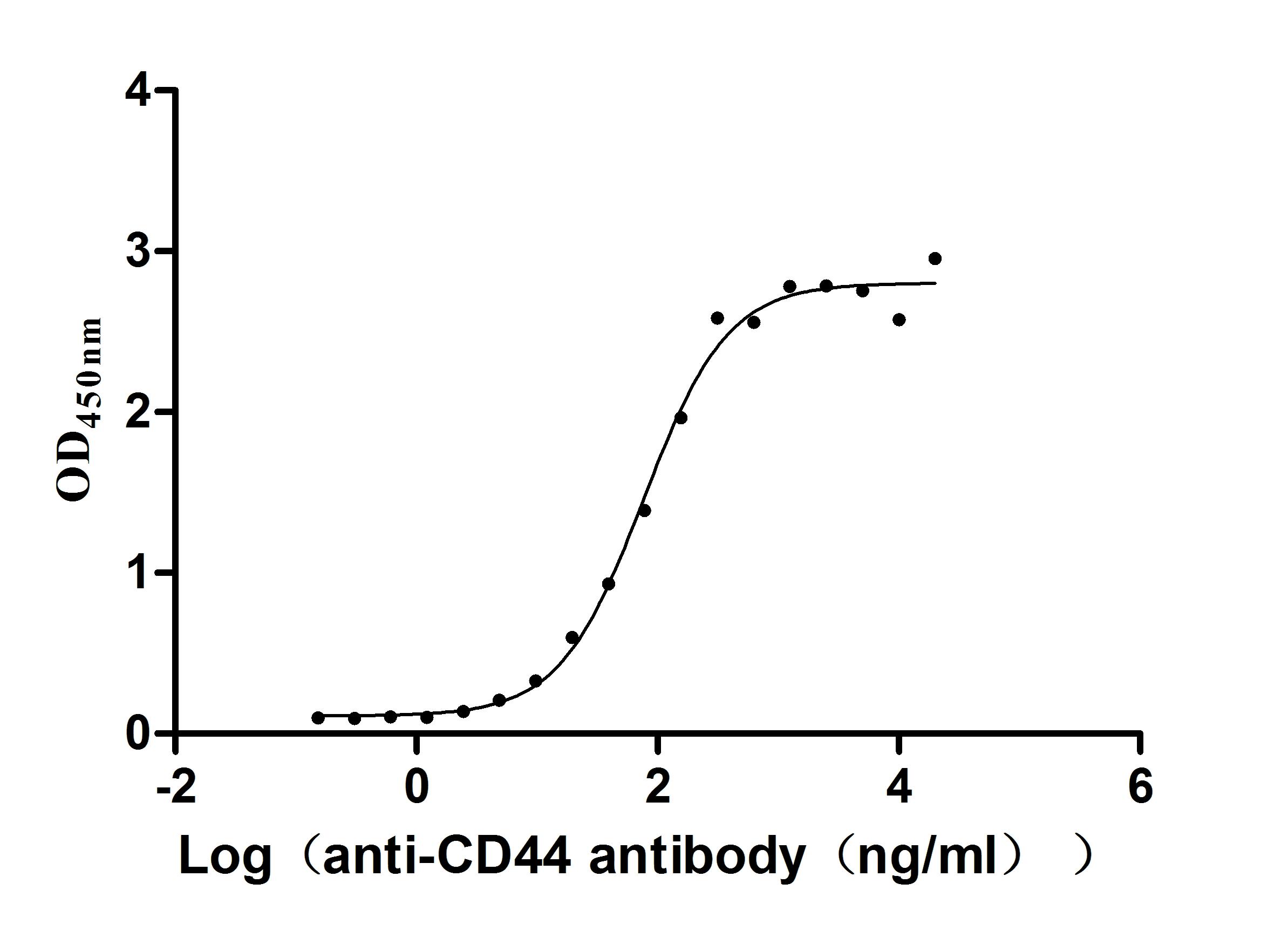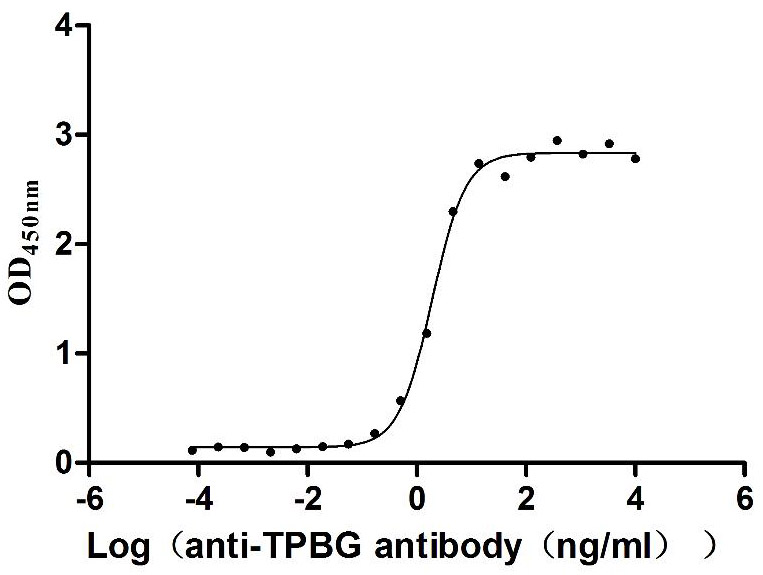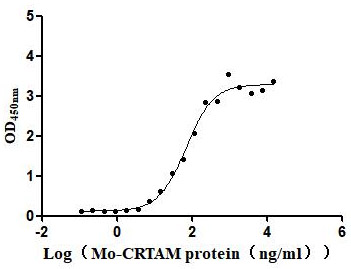Recombinant Escherichia coli Ferric uptake regulation protein (fur)
-
中文名称:大肠杆菌fur重组蛋白
-
货号:CSB-BP364302ENV
-
规格:
-
来源:Baculovirus
-
其他:
-
中文名称:大肠杆菌fur重组蛋白
-
货号:CSB-EP364302ENV-B
-
规格:
-
来源:E.coli
-
共轭:Avi-tag Biotinylated
E. coli biotin ligase (BirA) is highly specific in covalently attaching biotin to the 15 amino acid AviTag peptide. This recombinant protein was biotinylated in vivo by AviTag-BirA technology, which method is BriA catalyzes amide linkage between the biotin and the specific lysine of the AviTag.
-
其他:
-
中文名称:大肠杆菌fur重组蛋白
-
货号:CSB-MP364302ENV
-
规格:
-
来源:Mammalian cell
-
其他:
产品详情
-
纯度:Greater than 85% as determined by SDS-PAGE.
-
基因名:Name:fur Ordered Locus Names:b0683, JW0669
-
Uniprot No.:
-
别名:fur; b0683; JW0669Ferric uptake regulation protein; Ferric uptake regulator
-
种属:Escherichia coli (strain K12)
-
蛋白长度:Full Length of Mature Protein
-
表达区域:2-148
-
氨基酸序列TDNNTALKK AGLKVTLPRL KILEVLQEPD NHHVSAEDLY KRLIDMGEEI GLATVYRVLN QFDDAGIVTR HNFEGGKSVF ELTQQHHHDH LICLDCGKVI EFSDDSIEAR QREIAAKHGI RLTNHSLYLY GHCAEGDCRE DEHAHEGK
-
蛋白标签:Tag type will be determined during the manufacturing process.
The tag type will be determined during production process. If you have specified tag type, please tell us and we will develop the specified tag preferentially. -
产品提供形式:Lyophilized powder
Note: We will preferentially ship the format that we have in stock, however, if you have any special requirement for the format, please remark your requirement when placing the order, we will prepare according to your demand. -
复溶:We recommend that this vial be briefly centrifuged prior to opening to bring the contents to the bottom. Please reconstitute protein in deionized sterile water to a concentration of 0.1-1.0 mg/mL.We recommend to add 5-50% of glycerol (final concentration) and aliquot for long-term storage at -20℃/-80℃. Our default final concentration of glycerol is 50%. Customers could use it as reference.
-
储存条件:Store at -20°C/-80°C upon receipt, aliquoting is necessary for mutiple use. Avoid repeated freeze-thaw cycles.
-
保质期:The shelf life is related to many factors, storage state, buffer ingredients, storage temperature and the stability of the protein itself.
Generally, the shelf life of liquid form is 6 months at -20°C/-80°C. The shelf life of lyophilized form is 12 months at -20°C/-80°C. -
货期:Delivery time may differ from different purchasing way or location, please kindly consult your local distributors for specific delivery time.Note: All of our proteins are default shipped with normal blue ice packs, if you request to ship with dry ice, please communicate with us in advance and extra fees will be charged.
-
注意事项:Repeated freezing and thawing is not recommended. Store working aliquots at 4°C for up to one week.
-
Datasheet :Please contact us to get it.
相关产品
靶点详情
-
功能:Acts as a global negative controlling element, employing Fe(2+) as a cofactor to bind the operator of the repressed genes. Regulates the expression of several outer-membrane proteins including the iron transport operon.
-
基因功能参考文献:
- The influence of oxygen availability on the levels of active Fur adds a previously undescribed layer of regulation in maintaining cellular iron homeostasis in E. coli. PMID: 29087312
- High iron supply inhibits the synthesis of the genotoxin colibactin by pathogenic Escherichia coli through a non-canonical Fur/RyhB-mediated pathway. PMID: 28637194
- Finally, Fur derepression and RecA activation in enterohemorrhagic Escherichia coli O157 were shown to participate in the nitric oxide-enhanced Stx1 and Stx2 production, respectively. PMID: 28294553
- The s report that O2 availability affects the gene expression programs of two Escherichia coli master regulators that function in iron homeostasis: the transcription factor Fur and the small RNA regulator RyhB. PMID: 26670385
- The key regulator of the response to serum-active and inactive-is the iron regulator Fur, which controls the expression of more than 80% of the serum-upregulated genes. PMID: 25118243
- Fur exhibits a comprehensive regulatory role affecting many fundamental cellular processes linked to iron metabolism in order to coordinate the overall response of E. coli to iron availability. PMID: 25222563
- s demonstrated that the EHEC lpf2 operon is regulated in response to temperature, pH, bile salts and iron, during the exponential phase of growth, and is controlled by Fur. PMID: 24966050
- In a murine model of urinary tract infection (UTI), deletion of fur alone did not attenuate virulence, whereas a DeltaryhB mutant and a Deltafur DeltaryhB double mutant showed significantly reduced bladder colonization. PMID: 25245805
- There is a transient change in the activity of the iron regulator Fur and of the oxidative stress regulator SoxS after Zn addition. PMID: 22016571
- results presented here show that ftnA iron induction is independent of RyhB and instead involves direct interaction of Fe(2+)-Fur with an 'extended' Fur binding site (containing five tandem Fur boxes) located upstream (-83) of the ftnA promoter. PMID: 20015147
- H2O2-inducible antioxidant defense system leading to an increase in catalase; hydroperoxidase HPI activity, is unaltered in Deltafur mutants PMID: 15878120
- Tyr 55 of Escherichia coli Fur, as well as the two thymines in positions 18 and 19 of the consensus Fur Box, are involved with binding. PMID: 16212958
- Affinity of Fur for different metals was determined & ranges over several orders of magnitude in the order: Zn(II)>> Co(II)> Fe(II)> Mn(II). Only Fe(II) binds with sufficient affinity to activate Fur significantly at physiological metal levels. PMID: 16216078
- an activation mechanism for E. coli Fur involves the folding/unfolding of the N-terminal helix PMID: 16690618
- Fur protein translation is coupled to that of an upstream open reading frame, translation of which is downregulated by the non-coding RNA RyhB. PMID: 17268550
- Fur function may be antagonized by intracellular H2O2 by oxidizing the Fur:Fe(2+) complex and inactivating repressor function. PMID: 17462026
- In this study, information theory was used to identify new Fur binding sites, 13 of which we confirmed experimentally. PMID: 17921503
- In the fur+ strain compared to those in the fur- strain, expression of chromosomal dihydroorotase activity and beta-galactosidase activity of pyrC-lacZ fusion plasmid was repressed to about 30% and 17%, respectively. PMID: 18176545
- The characteristic metabolism of rpoS mutants required the activity of Fur (ferric uptake regulator) in order to decrease the synthesis of the small RNA RyhB that might otherwise inhibit the synthesis of iron-rich proteins. PMID: 18556786
- Binding of both zinc and iron ions induced a similar change in Fur conformations, but shifted residues closer to DNA in a different manner. PMID: 19023664
- transcriptomic data identified the global transcription regulators ArcA, CRP, Fis, FNR, Fur, BaeR, CpxR, and IHF as targets and potential CO sensors PMID: 19091747
收起更多
-
亚细胞定位:Cytoplasm.
-
蛋白家族:Fur family
-
数据库链接:
KEGG: ecj:JW0669
STRING: 316385.ECDH10B_0748


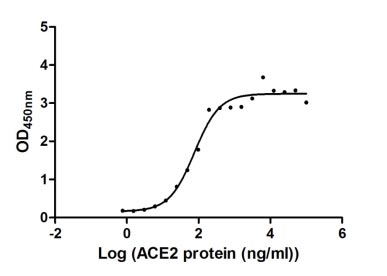
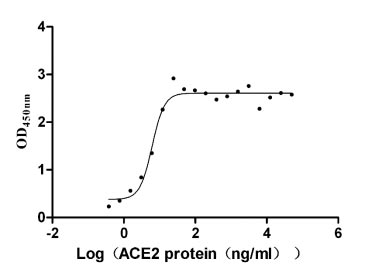
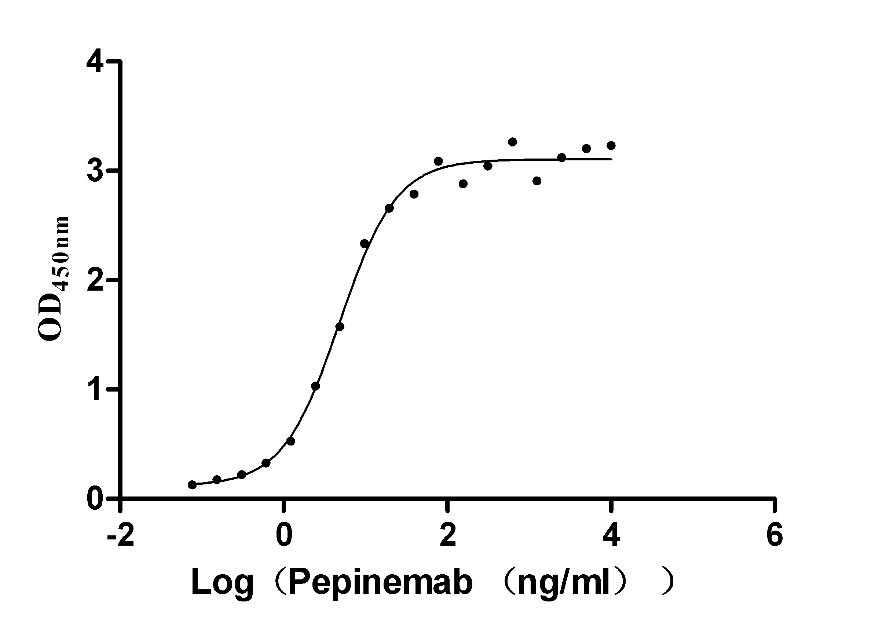
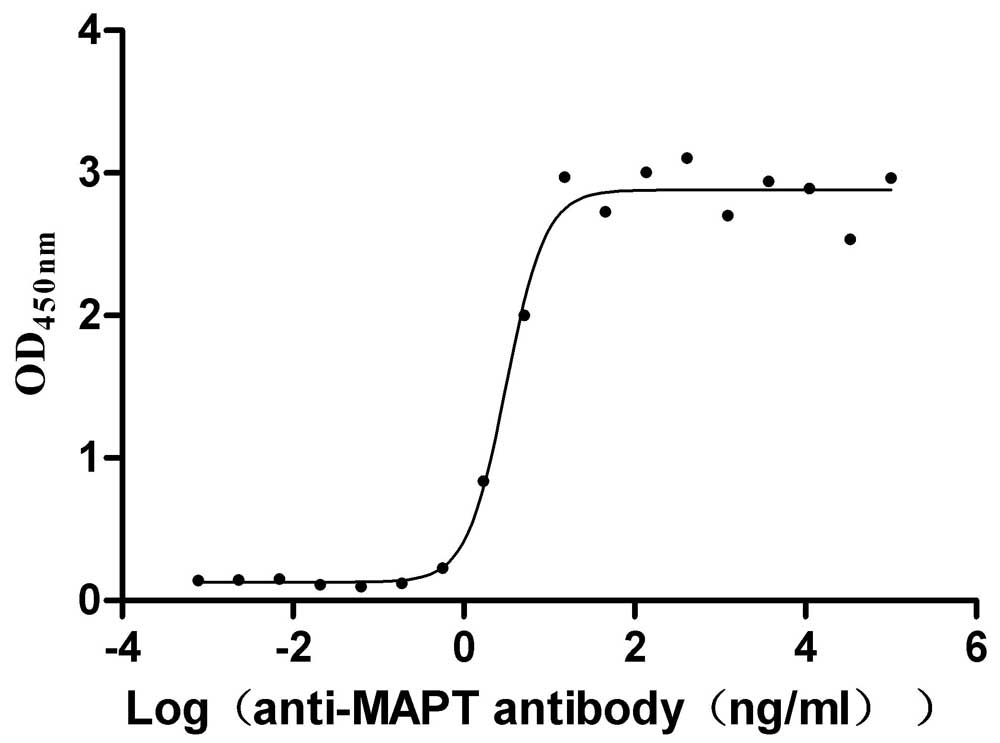
-AC1.jpg)
